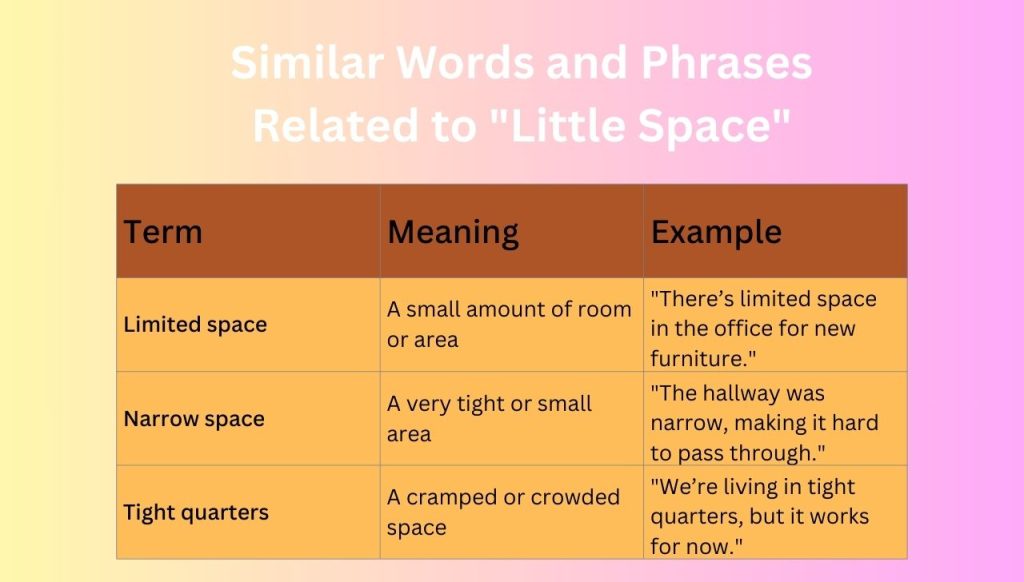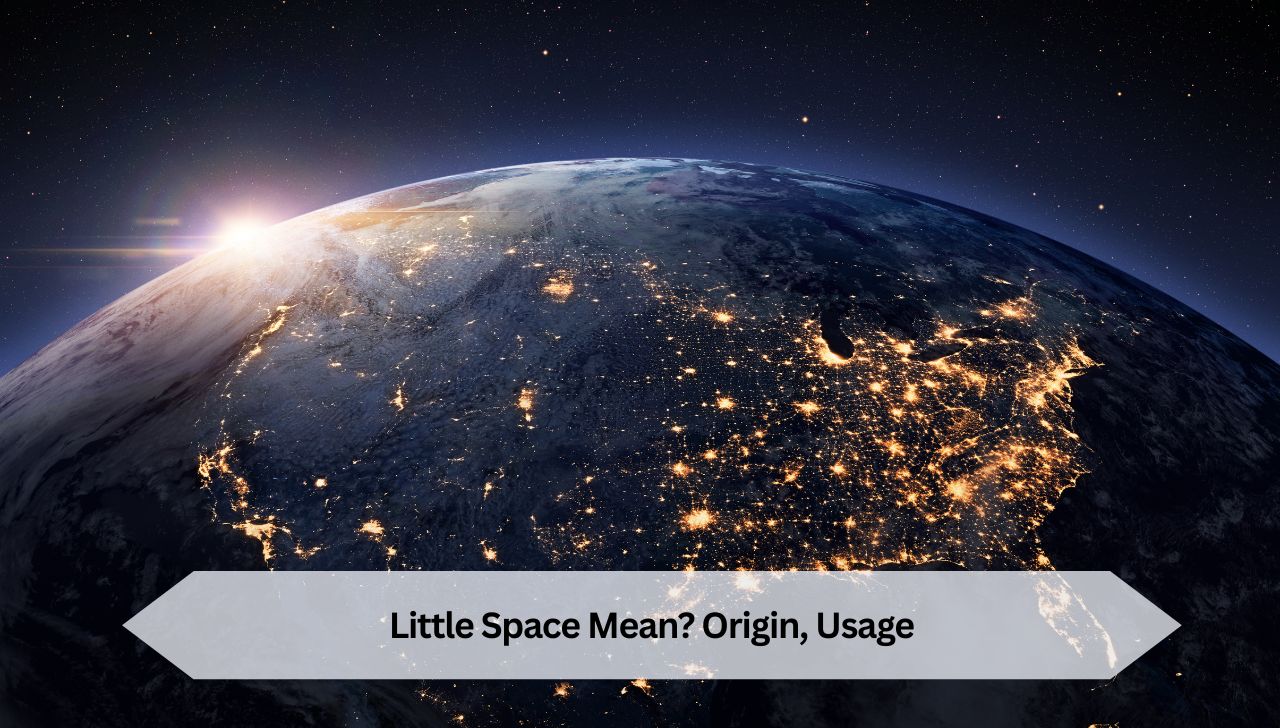Little Space Mean? Origin, Usage
“Little space” is a phrase many of us use. It can mean different things depending on where and how it’s used. The term can refer to a physical area, a small amount of time, or even emotional boundaries. This article explores what “little space” means, where it comes from, and how to use it.
What Does “Little Space” Mean?
“Little space” is a simple term. It refers to a small area or a brief amount of time. It can also refer to personal boundaries or emotional needs. The meaning changes based on the context.
- Physical Context: It could be a small room, corner, or area. For example, “There’s only a little space in the kitchen for the table.”
- Time Context: It can also describe a small amount of time. For example, “We only have a little space to finish this task.”
- Emotional Context: It can describe a need for personal space. “I just need a little space to clear my head.”
- Creative Context: In design or art, it refers to small, intentional gaps or areas. “Leave a little space around the logo to make it stand out.”
Expand Your Knowledge : What Is a Heffer? Meaning, Origins, and Common Uses
Where Did the Term “Little Space” Come From?
The word “space” has been around for centuries. It comes from the Latin “spatium,” meaning area or room. The term “little space” grew in usage as people’s lives became busier and more crowded. Cities expanded, and personal boundaries became important. Over time, the phrase “little space” evolved to reflect both physical and emotional needs.
As minimalism gained popularity in design and lifestyle, the term became more common. People started to value simplicity, and the idea of “little space” became a key concept in both art and personal well-being.
How to Use the Phrase ‘Little Space’ in Sentences
The phrase “little space” fits in many contexts. Here are some examples:
- Physical Context:
- “I don’t have much room in my closet; only a little space left.”
- “The garage is cramped, with only a little space for the car.”
- Time Context:
- “We need to finish this in a little space of time.”
- “There’s only a little space to finish the meeting.”
- Emotional Context:
- “After a long day, I need a little space to relax.”
- “He’s always too close. I need a little space to feel comfortable.”
- Creative Context:
- “The artist left a little space between the words to make them pop.”
- “Leave a little space around the text so it’s easy to read.”
In each case, the meaning shifts slightly, but the idea of something small or limited remains the same.
Common Misconceptions About “Little Space”
Some people misunderstand “little space.” Here are a few common misconceptions:
- It Only Means Physical Space: “Little space” isn’t always about physical area. It can refer to time or emotional boundaries, too.
- It Means No Space at All: “Little space” doesn’t mean no space. It means limited space. There’s just not much of it.
- It’s Always Negative: Some people think “little space” is bad. It can be frustrating, but it can also be a positive thing, like minimalism in design or personal boundaries in relationships.

Similar Words and Phrases Related to “Little Space”
Here are a few words and phrases like “little space”:
| Term | Meaning | Example |
|---|---|---|
| Limited space | A small amount of room or area | “There’s limited space in the office for new furniture.” |
| Narrow space | A very tight or small area | “The hallway was narrow, making it hard to pass through.” |
| Tight quarters | A cramped or crowded space | “We’re living in tight quarters, but it works for now.” |
| Compact space | A small but well-organized area | “This studio apartment is compact but has everything you need.” |
| Brief moment | A short amount of time | “I’ll need just a brief moment to grab my bag.” |
| Personal space | The invisible boundary around a person | “Please respect my personal space. I need time to myself.” |
Expand Your Knowledge : “Grand Rising: Meaning, Origins, and How It Impacts Your Day”
Conclusion
“Little space” can mean many things. It can refer to a small physical area, a limited amount of time, or the need for emotional distance. Understanding its different uses makes it easier to communicate in a clear and concise way. Whether you’re talking about a cramped room, a short deadline, or your need for privacy, “little space” is a flexible term that helps define boundaries, both physical and emotional.







